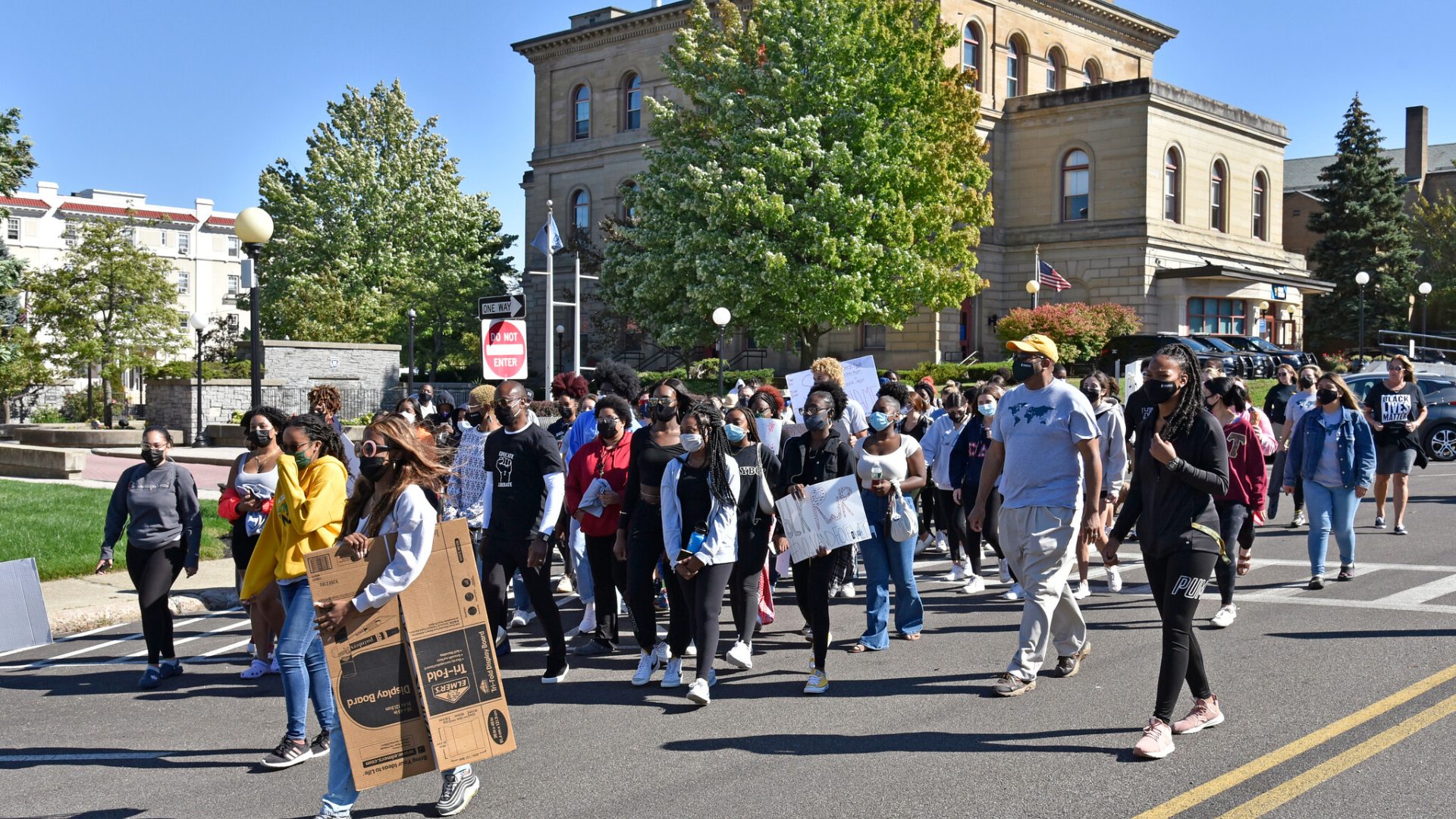To Register
To participate, please provide your email by completing the Google form linked here. We will use this only to gather emails to send links to the topic, resources, and reflection questions for each day's topic.
Overview
The Institute for Equity, Diversity, Inclusion, and Transformative Practice (The Institute) at SUNY Oswego is offering the Oz Equity Challenge as a way to bring SUNY Oswego together in learning about all forms of social justice.
The 21-day challenge is designed to create dedicated time and space to build more effective social justice habits, particularly those dealing with issues of race, power, privilege, and leadership. The daily modules are intended to raise your awareness, change your understanding, and shift the way you think and behave. The challenge as a whole is designed to allot time and space for participants to gain knowledge and build their social justice practices.
In our mission to foster an environment that respects, embraces, and promotes cultural humility, civil discourse, and active engagement we want to provide this opportunity and these resources to support understanding of issues of race, power, privilege, and leadership. We hope that all participants approach each activity with an open mind and willingness to develop a better understanding of each topic presented. All are encouraged to join, regardless of race, ethnicity, age, background, and where you are on your personal journey toward equity.
Challenge Logistics
- Each daily module will be posted to the Oz Equity Challenge page and archived as we go
- Each day, registered participants will receive an email with a link to the day’s module and a link to share responses to related reflective prompts
- Each day, a link to the day’s module will be shared via Oswego Today
For each day's topic we will provide a few short reflection questions. Your responses will be anonymous and are provided as a way to help you to think more deeply and personally about each day's topic. Responses will further give us ideas about conversations the campus might be interested in having more broadly. Check out our social media for prizes and giveaways for participating in the challenge.
Day 1
Getting Started
The goal of the Oz Equity Challenge is to help participants become more socially aware, compassionate, intentional, and engaged with our mission of striving toward a more inclusive campus.
Day 2
Cultural Humility
SUNY Oswego is home to people of diverse cultures and backgrounds. It’s important to understand the concept of cultural humility as it pertains to interacting and engaging with others who may not share the same identities as you.
Day 3
Social Identity
Social identity refers to people's self-categorizations in relation to their group memberships (the “we”). These categorizations are often assigned to us or something we are born into.
Day 4
Implicit Bias
Implicit bias, or unconscious bias, refers to attitudes and beliefs that occur outside of our conscious awareness and control. An implicit bias may be intertwined in a person's conscious beliefs without them realizing it.
Day 5
Exploring and Addressing Bias
Each of us holds some form of bias, whether we know it or not. In a lot of circumstances, we are not aware of the implicit biases that we may hold.
Day 6
Stereotypes
Stereotypes are defined as “fixed, overgeneralized beliefs about a particular group of people.”
Day 7
Microaggressions
Microaggressions are “brief and commonplace daily verbal or behavioral indignities..."
Day 8
Interrupting or Addressing Microaggressions
Understanding and addressing microaggressions can be challenging because the realization that we hold biased world views can feel uncomfortable.
Day 9
Empathy
Empathy is the ability to emotionally understand what other people feel, see things from their point of view, and imagine yourself in their place.
Day 10
Student Achievement Gap
The Student Achievement Gap refers to the disparity in academic performance between groups of students across different demographics.
Day 11
LGBTQIA+ Equality
Like race and socioeconomic status, inequities for people identifying as lesbian, gay, bisexual, transgender, or queer (LGBTQIA+) can be seen across many dimensions, including education systems, and the workplace.
Day 12
Gender Equity
Gender equality is a fundamental human right and that right is violated by gender based discrimination.
Day 13
Ableism
Ableism is the discrimination of people with disabilities based on the belief that typical abilities are superior. The concept of ableism is rooted in the assumption that disabled people need to be ‘fixed’ and defines people by their disability.
Day 14
Equity for Indigenous Peoples
Native American, or Indigenous, people have lived on what is now the United States before its colonization. The U.S. government systematically removed Indigenous people from their homelands and attempted to force their assimilation to white culture.
Day 15
Equity for Asian American, Native Hawaiian, and Pacific Islanders
It’s important to recognize that Asian American, Native Hawaiian, and Pacific Islanders (AANHPI) encompasses a wide range of countries, ethnicities, nationalities, and identities.
Day 16
Equity for People Who Identify As Latinx/e
The Latinx/e community is the largest ethnic group in America today and a major force contributing to reshaping the economic, social, and cultural fabric of our society.
Day 17
Intersectionality
Intersectionality is the acknowledgement that everyone has their own unique experiences of discrimination and oppression and we must all aspects of one’s identity that can marginalize people.
Day 18
Racial Identity Development
Racial Identity Development has been described as a dynamic developmental process that occurs over time.
Day 19
Structural Racism
Structural racism is the system in which public policies, institutional practices, cultural representations, and other norms work in various, often reinforcing ways, to perpetuate racial group inequity.
Day 20
Anti-Racism
Anti-racism is a process of actively identifying and opposing racism.
Day 21
How To Be An Ally
Allyship is using your power, privilege and influence to make the cause of a marginalized group(s) your own.
Last Day
Wrap Up
Thank you to everyone who took time out of their days to actively participate in SUNY Oswego’s first annual Equity Challenge!
